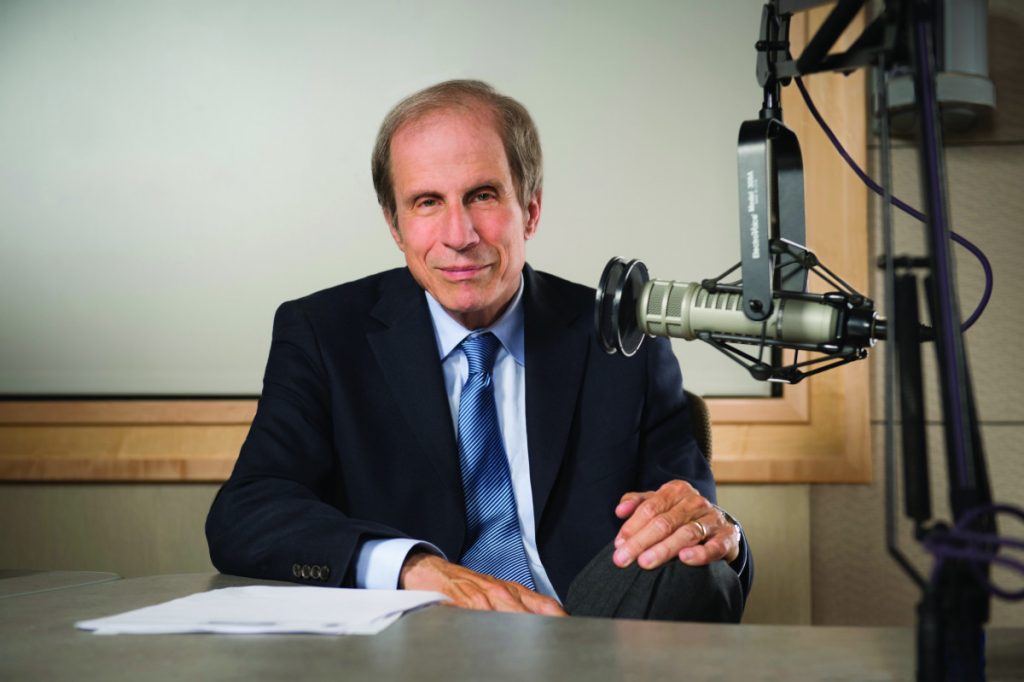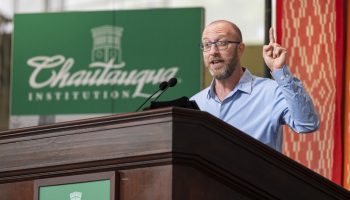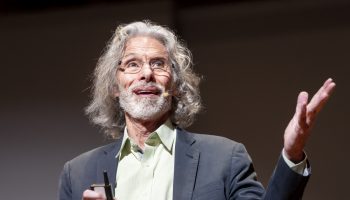MAX ZAMBRANO – STAFF WRITER

Michael Krasny is an educator through and through, in the classroom and beyond.
Starting in 1970, Krasny became a professor of literature at San Francisco State University. From there, he’s also taught at Stanford University, the University of San Francisco, the University of California and in the Fulbright International Institutes.
A decade after becoming a professor, Krasny began surfing the airwaves, and by 1993, he was the host of KQED’s “Forum,” a live call-in show focused on news and public affairs.
“I also talked to a lot of literary figures and people in the world of the public eye,” Krasny said. “I had the great privilege of interviewing presidents, heads of state and Nobel Prize winners, just a whole range of outstanding and extraordinary people, and also just everyday people, people just in the news.”
Krasny retired from “Forum” in February 2021, but he said he always enjoyed it, just as anyone should enjoy what they do.
“At first, I was nervous of being in the public eye, but I got kind of an appetite for it,” he said. “I enjoyed doing what educators do, ideally — which is communicating ideas and bringing a higher level of discourse.”
Krasny hopes to bring this type of energy at 1 p.m. Monday, July 26 in the Amphitheater for his lecture “Jewish Humor: History, Culture and Identity,” the first of Week Five’s Interfaith Lecture Series themed “The Authentic Comedic Voice: Truth Born of Struggle.”
Jewish humor has a lot of stereotypes, Krasny said, but a true one that stuck out to him is that much of Jewish humor comes out of suffering.
“But, I realized that as a student, teacher, critic of literature, scholar of literature, that jokes — and jokes aren’t the only example of Jewish humor, there’s Jewish humor in film and television and anecdotes — were built like narratives, and had a great deal of things to be learned about Jewish identity and Jewish experience, but also about life in the broader personal sense,” he said.
Krasny explored Jewish humor in his 2016 book Let There Be Laughter: A Treasury of Great Jewish Humor and What It All Means. He is also the author of Off Mike: A Memoir of Talk Radio and Spiritual Envy: An Agnostic’s Quest.
“I think there’s a lot to be said about this idea that humor is a catharsis or release of anxiety,” he said. “It can illuminate a great ideal and provide us an understanding that once you start digging in and become an archaeologist with the language and what’s subtextually beneath the language, and the psychology of the stories or tales or jokes, there’s an immense amount there.”
When teaching literature, Krasny said he is really teaching literary theory, history, psychology, linguistics and science. He spent years with a science and humanities convergence program funded by the National Endowment for the Humanities, he said.
“I enjoy writing and talking about a whole range of topics,” he said.
One of Krasny’s most enlightening teaching experiences was back in the 1970s, when he was asked to teach a course on Black literature, he said. Krasny is white, and he was hesitant to accept such a role.
“I don’t think a white person would be asked to do that today,” he said with a laugh.
He ended up accepting the position, and emphasized to students he wasn’t pretending to be an insider or understand the Black experience from that perspective. Instead, he said he was a scholar and an outsider. Now, he is writing a book about this experience.
“It was some of the best teaching, most rewarding teaching of a lifetime,” he said.
For his lecture, Krasny hopes he provides an enlightening conversation about Jewish humor, understanding that seeing humor through an analytical lens can ruin the humorous aspect of a joke. He sees it another way.
“I’m not doing stand-up or anything like it, but something that can be uplifting, but also make people think or expand their consciousness,” he said. “I think that’s what a good talk, presentation or, frankly, a good stand-up routine should do.”




